Feeding your tomatoes is the best way to ensure of steady supply of fruit all season, but choosing the correct product can be overwhelming. There are thousands of plant fertilisers out there, so you need to make sure you're buying one with the right nutrient levels to promote fruit growth.
We've rounded up some of the best tomato fertilisers on the market to make growing a breeze.
Best fertiliser for tomatoes in 2024
Levington Tomorite Concentrated Tomato Food
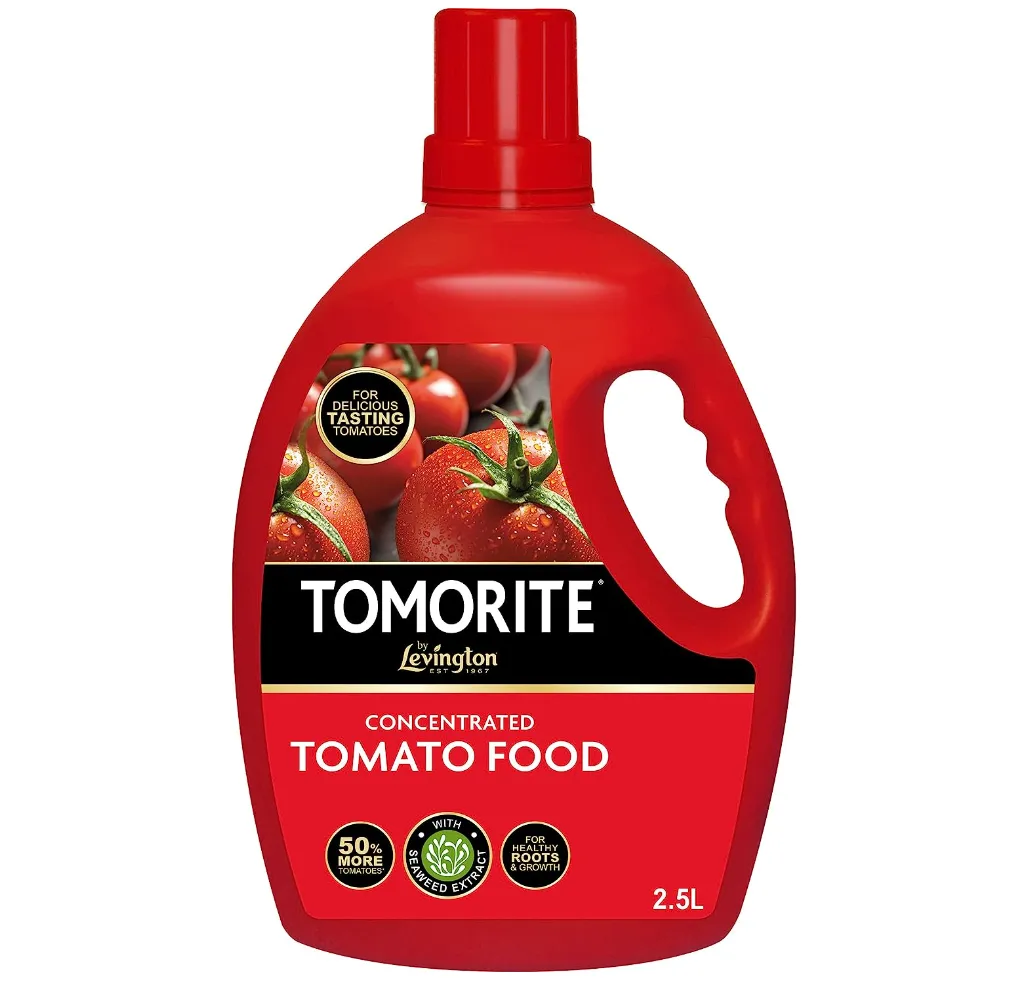
With an NPK analysis of 4-3-8, Levington’s best-seller feed is enriched with seaweed extract for additional nutrients and boasts a 50% increase in yield of your tomato crop. Ideal for tomatoes, vegetables and flowering plants, particularly if you are growing in a container or grobag. Use the cap to measure out the correct amount and dilute as directed, depending on your crop and whether you are growing indoors or out. Available in three sizes 500ml, 1l and 250l (1 litre gives you 225 litres of diluted feed).
Maxicrop Organic Tomato Natural Fertiliser
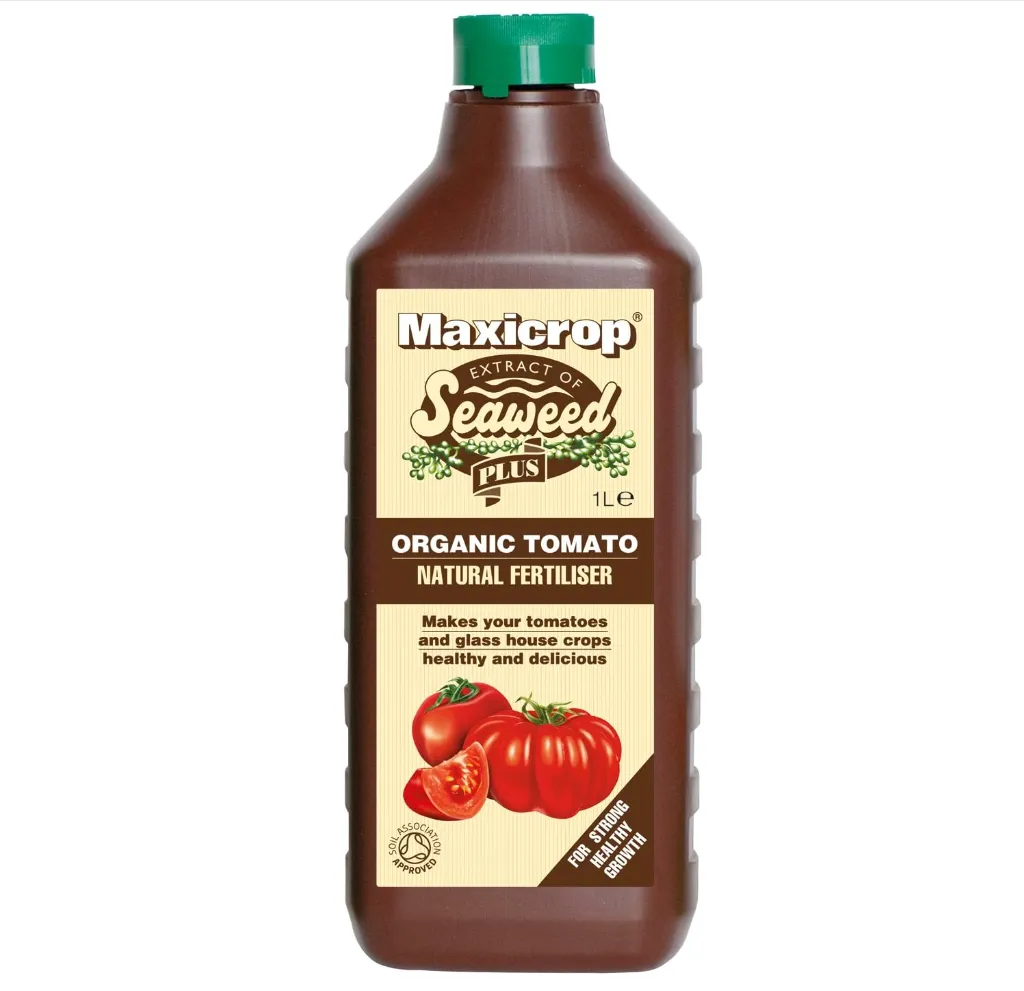
Approved and certified for organic growing by the Soil Association, Maxicrop’s feed is made up of sustainable raw materials that are safe for the environment, children, pets, and wildlife. It includes seaweed extract for those extra nutrients and has a fertiliser ratio of NPK 4-2-6, so a nice potash uplift for good fruiting and tasty cropping. With a reasonable nitrogen ratio too, Maxicrop helps improve root system so that they can take up more soil nutrients and water; and greener, more chlorophyll-filled leaves for better use of sunlight energy.
Doff Tomato Feed
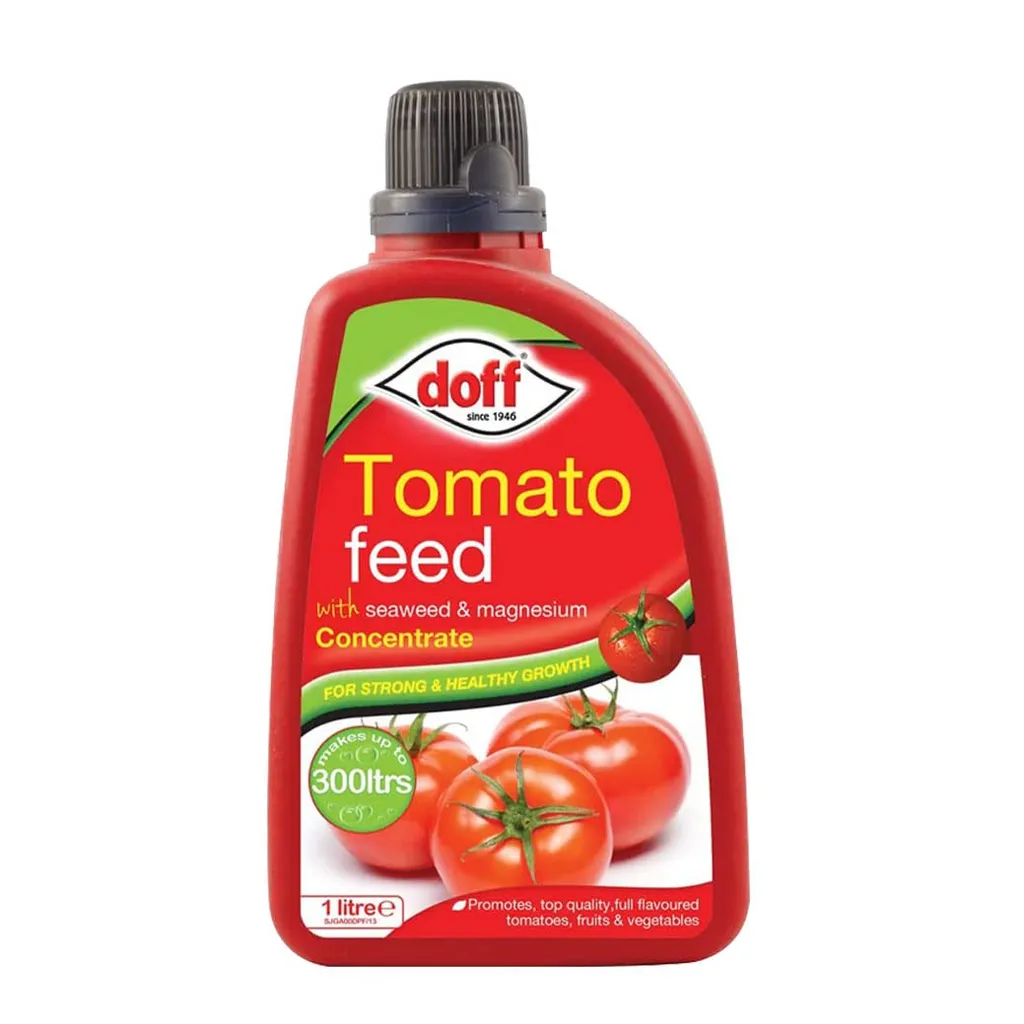
This high potash feed, with fertiliser ratios of NPK 4-5-9, also has added seaweed extract and magnesium. So as well as those essential growth promoters, these additions offer key minerals to help ensure all-round great plant health and a bumper crop. Ideal of courgettes, aubergines, other veg and flowers too. A 1-litre bottle makes up 300 litres of feed.
Natural Tomato Food Liquid Fertiliser
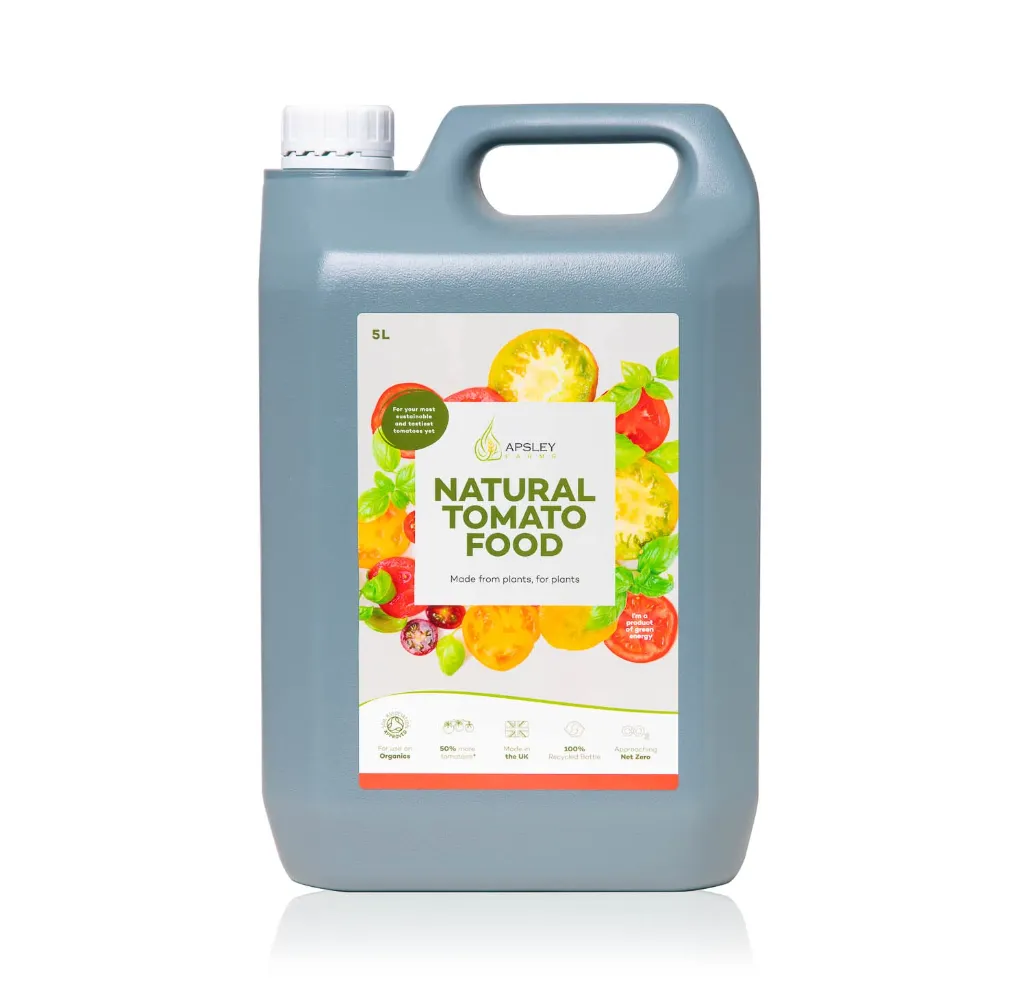
Approved for organic growing, and available in a 100% recycled plastic container, this tomato feed takes its eco credentials seriously. Derived from plants, for plants, it contains all the necessary NPK nutrients along with added magnesium and fulvic acid to aid peak plant performance. The UK producer Apsley Farms is the UK’s third largest biomethane plant, supplying natural gas from its biodigester facility. Their liquid fertilisers are derived from the same process, making them a more sustainable purchase.
Florasoul Tomato Booster
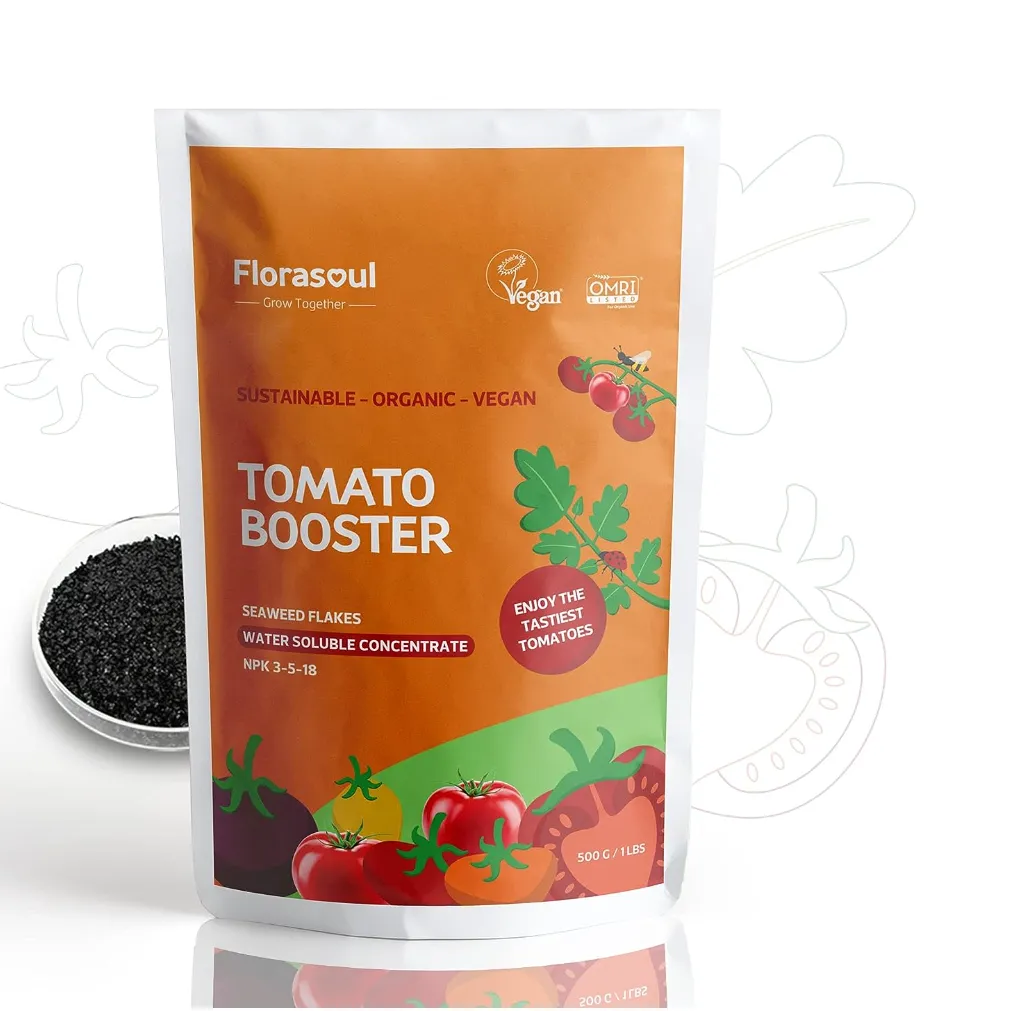
Made of natural, renewable raw materials, this is a vegan-certified option rich in macro and micro nutrients (NPK 3-5-18) that act as a stimulant to healthy plant growth. This seaweed-based feed comes as flakes, which are storable for 3 years and can be mixed with water to give just the amount you need. Use as either a foliar spray or for normal watering to the soil around the roots of tomato plants or other fruiting crops. Completely safe for wildlife and children and odour neutral too.
How to choose a tomato fertiliser
Why do I need to feed my plants?
If you’ve planted your tomatoes in a grow bag or compost, the nutrients will last about 4-6 weeks, which will be around the time your plants will be starting to flower. So to ensure good results, it is well worth giving your plants a boost of nutrients. Tomato feed is a great source of potassium (potash) needed for healthy flower and fruit production.
But tomato feed isn’t just for tomatoes; you can use it on any of your plants that are working hard to produce lots of flowers (eg summer bedding plants in containers), fruit and veg (eg peppers, courgettes and aubergines).
What to look for in a tomato fertiliser
All plant feeds contain a combination of nitrogen (needed for healthy foliage), phosphorus (for shoots and roots) and potassium (for fruits and flowers). These are the key nutrients needed to support plant growth. You’ll find the mix of these nutrients described on the label of your feed as ratios of NPK (nitrogen, phosphorus, potassium). The higher the numbers in a ratio the more concentrated it is. For tomato feed, you are looking for a higher potassium (K) ratio to help produce lots of healthy, flavoursome tomatoes.
What about seaweed extract
You'll see that many tomato feed now include, or are made of, seaweed extract. Seaweed includes trace elements such as iron, manganese, zinc, copper and boron, all helpful for growth and which can be lacking in soils and composts, or quickly used up. Adding it as part of your feed can improve plant health.
When to feed your plants
Start to feed your tomatoes as soon as the first truss of fruit has formed. A weekly application is usually recommended but it will depend how and where you are growing your plants and the particular feed you are using - always check what the label says. And make sure you dilute correctly; adding more feed to less water isn’t a shortcut to better results. You should not allow plants to dry out in between feeds - keeping your plants adequately watered is key, no matter how diligent you are with feeding.
You might also be interested in:

